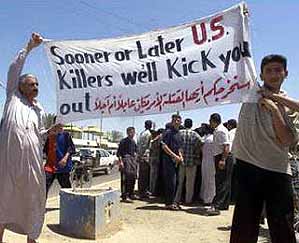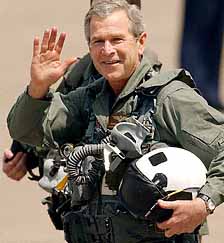View current page
...more recent posts


Slate has a rather tedious essay up at the moment explaining The Matrix's appeal to geeks. (Nerd becomes hero; it's like a computer game; other obvious points.) A more pertinent question is why it did so well with non-geeks. I saw the movie in a packed Times Square theatre and can attest that the kung fu-cheering audience came from all walks of life--not just Silicon Alley. Salon critic Andrew O'Hehir had an observation three years ago that now seems almost nostalgic:
The Matrix was the first movie of '99 to tap into the deepening unease surrounding the info-consumption economy. Its vision of the human race as isolated prisoners being forcefed an electronic false reality is, after all, pretty much true.I say almost nostalgic because while the context has changed from Clinton bubble to Bush endless-terror-war, the "electronic false reality" still remains in place. Even though I saw the World Trade Center fall with my own eyes, the image became intermixed almost immediately with the mediated version on TV, which had camera angles and freeze frame capability and running commentary unavailable to my bare senses. As Slovenian theorist Slavoj Zizek points out (thanks, Bruno), the twin towers' destruction was exactly the type of Hollywood blockbuster explosion America had been feeding itself as entertainment in the years preceding 9/11 (think Independence Day). In his essay written a few days after the WTC-toppling, Zizek somewhat touchingly wondered if the event would open our country's eyes to its own filtered, Truman Show reality. As if! From the slime tanks where we serve as human batteries, we've now seen two Matrix-like wars won with sheer technology. I didn't witness it, but read many media accounts of Pres. Bush's photo-op jet landing on an aircraft carrier after he "whipped Saddam's ass." The newscasters were gushing about how good he looked in a flight jacket. Maybe for the next war he can wear a long black coat.
